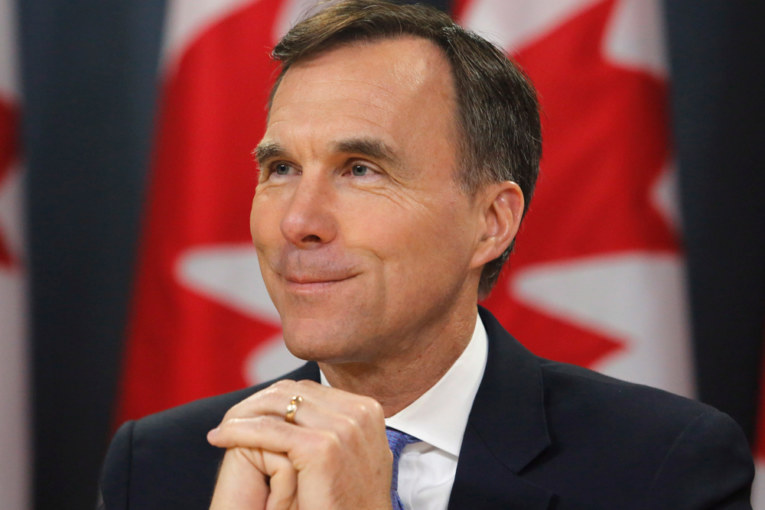
WINNIPEG — The Canadian government’s optimism that outside investors would be interested in taking over the Kinder Morgan Canada Trans Mountain oil pipeline project if the company pulls out might be misplaced, said energy industry sources and analysts.
Finance Minister Bill Morneau said on Wednesday that Canada was prepared to cover some losses the firm might suffer if the proposed $7.4 billion (US$5.8 billion) expansion of its Trans Mountain line was delayed and predicted “plenty of investors would be interested” in stepping in if need be.
Kinder Morgan Canada has said it will ditch the Trans Mountain expansion by May 31 unless Ottawa dispels the uncertainties over the project, which the provincial government in British Columbia strongly opposes on environmental grounds.
A Canadian energy industry source who was not authorized to speak publicly about the matter said Morneau’s comments about potential new investors were puzzling.
U.S. companies are likely more focused on easing pipeline bottlenecks south of the border and are not interested in taking on the Trans Mountain project, which still faces fierce opposition, the source said. Hundreds of people have been arrested in Burnaby, the British Columbia port where the pipeline ends.
“It doesn’t matter who the owner is, even if it’s the federal government, you’re not getting the grandma off the picket line in Burnaby,” said the source.
A Calgary, Alberta-based oil trader said Morneau’s assurances struck the wrong chord.
“I don’t want the government involved in owning or funding a pipeline. Two governments from now, who knows what they would do with it? Just the wrong message to the industry, really.”
Kinder Morgan Canada already operates the Trans Mountain pipeline and it is unclear whether it would welcome a rival taking over the expansion, or if it would make practical sense.
Although one option might be to let an overseas company to step in, foreign investment in Canada’s energy sector could be a sensitive issue.
Andrew Botterill, national oil and gas leader at Deloitte, which advises energy companies, said investors think Canadian pipelines and other resource projects generally face high political risk.
“That’s the type of risk that makes it very difficult for companies to come in and invest in Canada, when they’re looking globally for stability,” he said.
If outside investors shy away, the obvious option would be for the federal government to look at taking a stake in the expansion or buying it outright.
A source with deep ties to the natural resources sector who was not authorized to speak publicly about the matter suggested Canada’s recently created Infrastructure Bank might be the best way to invest. The agency is open for business but has yet to facilitate financing for any project.
Infrastructure Bank could not be reached for an immediate comment.
© Thomson Reuters 2018
You can read more of the news on source
